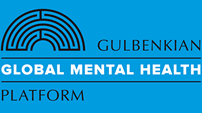Call for Applications from young leaders from low and middle-income countries to The Lancet Commission on Adolescent Health and Well being

This year, the leading medical journal The Lancet launched a new Commission on Adolescent Health and Well-Being. The Commission is the latest of several major investments by The Lancet on the health of young people over the past six years. These included a special journal series on adolescent health that coincided with the first-ever UN Commission for Population and Development (CPD) focusing on adolescence and youth (2012). The Lancet series on adolescent health is but one of several high-level reports and activities on youth health and rights in recent years. UNICEF launched its Progress for Children Report focusing on adolescents in 2012, and the International Labor Organization, UNICEF, USAID and UNFPA have increasingly brought attention to the world’s largest-ever generation of young people. For the first time, there is a sense that adolescent health is on the global agenda. It is a time of great opportunity for the field. However, much remains to be done. The broad model of health and well-being conceptualized in the recent Lancet series remains a long way from reality, both at the national and international levels.
The Lancet Commission has an academic core (University of Melbourne, Columbia University, London School of Hygiene and Tropical Medicine and University College-London) with an aim of building partnerships in research and training. It also involves those at the intersection between academia and policy making, practitioners and funders.We anticipate the Commission to produce a report for The Lancet in 2015. The Commission held its first meeting in October, 2013 with around 20 experts from across the world. To ensure that young people themselves are represented, integrally involved in and contributing to its work, the Commission is seeking to add two young people as full members. These members will both contribute to the overall work of the Commission and help lead a section of the report on sustainable models for youth engagement and leadership. We expect this would involve the development of an outreach strategy to a much broader global community of young people.The new commissioners will be expected to participate in two further in-person meetings of three days each over the next 18 months. They should expect to contribute around 10 – 15 hours per month during this time to the work of the Commission. All expenses associated with attending meetings of the Commission will be covered, and the youth commissioners will be eligible to receive a stipend for their participation.Deadline 5:00PM EST, 22 November 2013.
